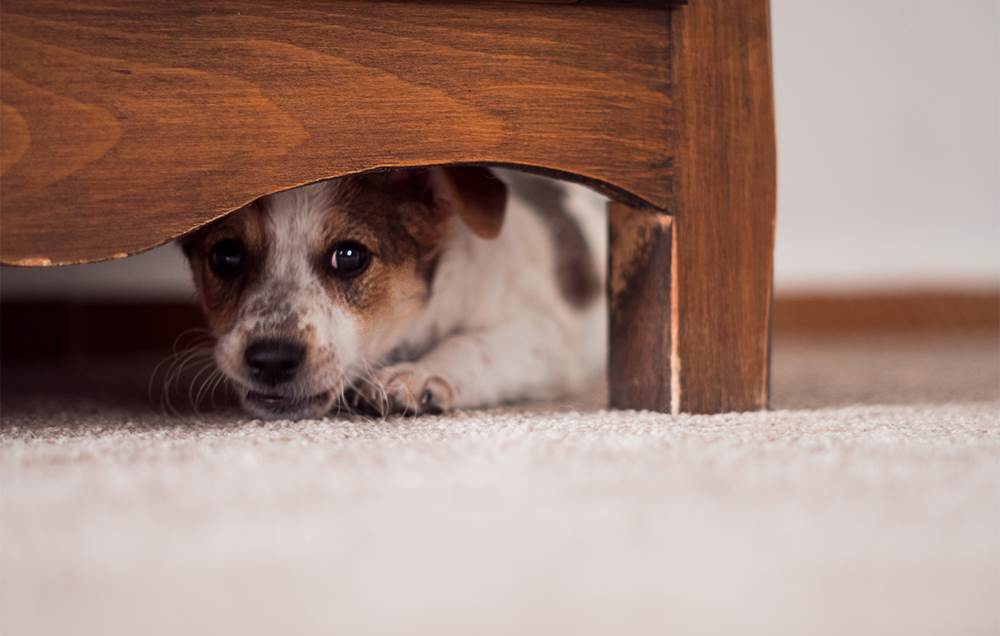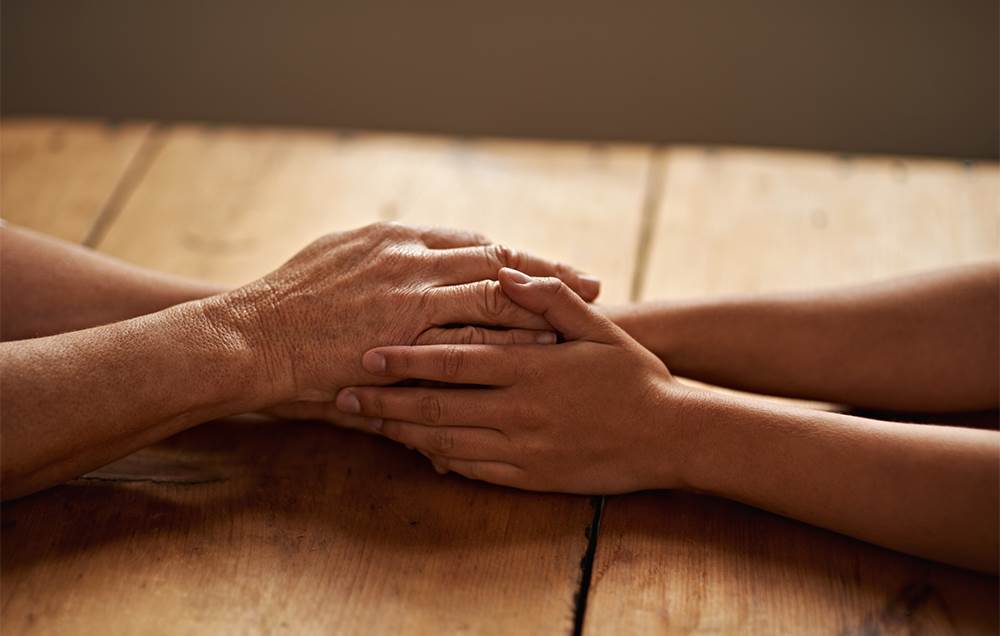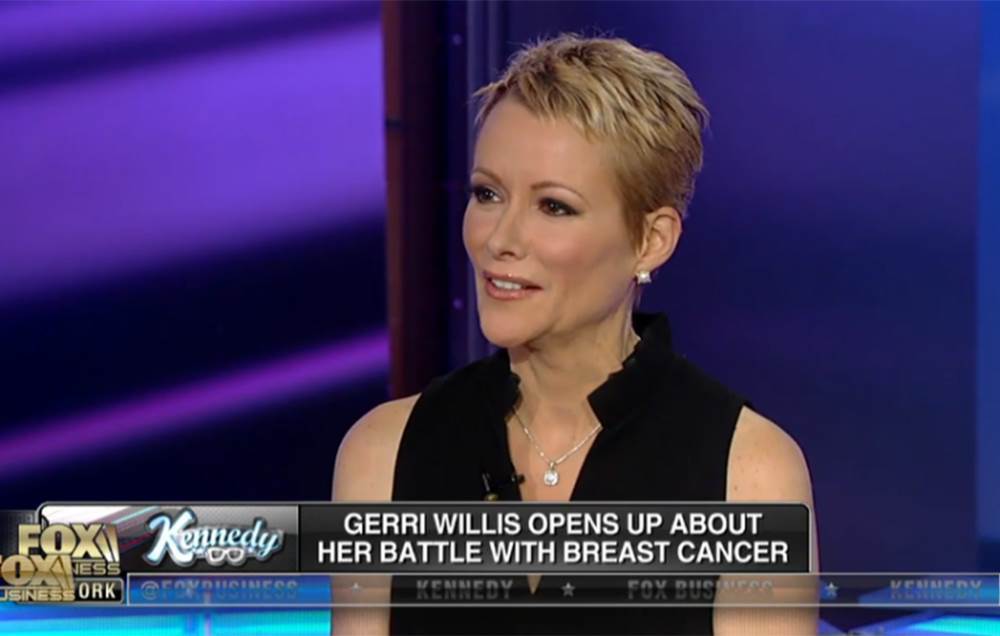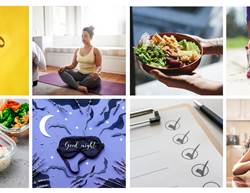Earlier this year, TV anchor Gerri Willis lost her iPad. She assumed it was gone for good until she received a call from a woman who said she had found it. With a thank-you flower bouquet in tow, Willis headed over to the woman’s apartment to pick up her device. She left with her iPad—and a powerful sense of connection she might never have experienced a year or two earlier.
In early 2016, Willis learned she had stage 3 breast cancer. As someone who had always been healthy, she said the diagnosis felt like a betrayal. “My confidence in my body and my confidence in my ability to direct my own life were destroyed for a time,” she says.
Willis underwent a mastectomy of her right breast and received Adriamycin, a chemotherapy drug whose side effects (like severe nausea, vomiting and mouth sores) can be so ravaging that it’s often referred to as the "red devil." She also underwent five weeks of radiation. At first, Willis tried to play it tough. But she soon realised that the only way to make it through her treatment was by letting herself be vulnerable—and by drawing strength from those around her.
While picking up her iPad, the woman told Willis that she had heard about her cancer and that she was sorry for what Willis had gone through. “My husband died of cancer,” she said. The moment touched Willis, but not just because the stranger was so open and kind. “Before cancer, I would have breezed in and out of her house without a second thought,” she says. “But now, I was more open to her.”
Now in remission, Willis is relishing the lessons she learned during her battle—and she’s out to share them with others who are going through the same thing. Here’s what she wants women to know:




Let yourself feel scared.
After decades as a successful journalist, Willis was used to working hard and making things happen. So when she first found out she had cancer, she saw it as something that she simply needed to get through—so she could get back to her real life. “Going into it, I thought, I’m just gonna grin and bear it,” she said.
Willis tried to put on a strong face for her family as well as her fans. But then, she went through two intense moments that made her realise just how grave her situation was—and how scared she really felt. While receiving a spinal block before her mastectomy, she started shaking with fear uncontrollably. “It was a sign that I was more frightened than I realised, and I should have listened to it.” Then, during a chemo session shortly after, the nurses were unable to find a vein to administer her IV. “They tried three, four, five times. And I was so anxious; I was making it worse,” she says.
That's when it really hit her. “I realised it’s not just about seeing over the horizon and waiting for the six-month mark to come up,” she says. “People who’ve been through cancer talk about enjoying the moment, living in the moment. That’s when that started for me.”
Be an active participant in your treatment—but don’t let it define you.
After those transformative events, Willis realised that she was in charge of how she experienced her treatment. She might not be able to control the side effects, or even whether the medication was effective. But she could control how it made her feel emotionally.
“I realised I wasn’t in charge. But I could help,” she says. To take a more proactive role, Willis marked all 25 of her radiation appointments on a whiteboard and crossed each one off after it was done so she could mark her progress. “It’s important to pat yourself on the back for the things you’re doing right. You’re getting yourself healthy—and it's your most important job,” she says.
Still, she didn’t let treatment sessions and doctor appointments become her whole world. “You have to continue to live your life,” she says. Willis started spending more time in nature—something that’s been shown to help cancer patients cope with the emotional upheaval of their diagnosis.
Forge deeper connections with others.
Facing a potentially terminal illness helped make Willis’ top priorities—her husband, family, and friends—crystal clear. So instead of retreating into herself, she started spending more time with them, including those that she normally didn’t get to see very often. One time, Willis’ brother came to visit her for four days. “We hadn’t done that since we were, like, 12,” she says.
She built new relationships, too. Willis assembled a powerhouse team to run a charity race. “We came out fourth or fifth in their list of donors,” she says. She joined a local nonprofit community organisation for people with cancer and their families, where she met others who were going through the same thing as her. And she got to know the staffers who administered her treatments. “We decorated the radiation machine, and I came to give Christmas presents,” she says.
Embrace the new you.
Once she began treatment, Willis’ long, blonde hair started falling out in clumps. She wore a wig on-air after going back to work for a while but soon realised that trying to look like her old, “normal” self wasn’t working. After going through cancer, the woman with the long, blonde hair just wasn’t her anymore. “I felt like I was pretending,” she says.
So this past spring, she debuted a new, short hairdo. “Getting rid of [the wig] was a wonderful moment for me. You’ve just gotta be up front with this stuff,” she says. Willis even tried to steer clear of using the word “mastectomy” when talking about her surgery, because she felt like using a medical term instead of plain language masked what she actually went through: having her breast removed. “I’d been through breast cancer. I wore it like a badge,” she says.
Cancer changed Willis on the inside, too. She admits that there were times during her illness when she wanted to give up. But forging through treatment—and being open to the lessons that came with it—affected her in ways she couldn’t have anticipated. “You think you know what’s going to happen. But what happened was much better than I could have possibly imagined,” she says. “I realised that there are no gifts. You have to be thankful for all the good things that happen in life.”









